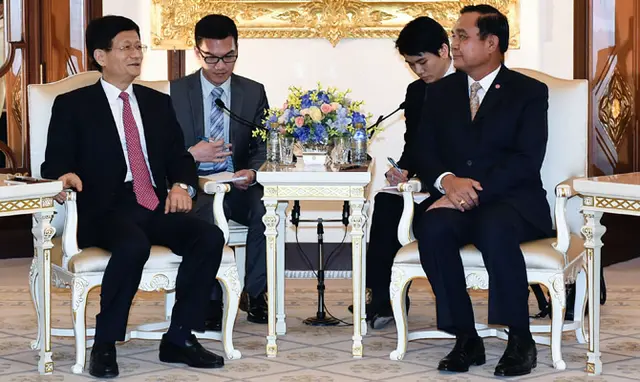What until some weeks ago was just a media rumor, the resignation of Italian President Giorgio Napolitano between the end of 2014 and beginning of 2015, has become a certainty and the country is wondering, still with no answer, who the next head of State will be.
Many personalities, from former Prime Minister Romano Prodi to the head of Italian Senate Pietro Grasso and Economy Minister Pier Carlo Padoan as well as non-political figures such as conductor Riccardo Muti, have been mentioned as possible candidates by the Italian press in the past weeks.
Debate was high in the political world. Prime Minister Matteo Renzi said he would like the new president to be elected with the broadest possible consensus, after Napolitano, 89, made it clear last week that he would not complete his seven-year term and called the end of his mandate "imminent."
"All the political parties will have to conduct a serious reflection on what Italy needs in the next seven years," Renzi said.
But the final choice has a way to go, Peter Gomez, cofounder and columnist of Il Fatto Quotidiano newspaper, told Xinhua.
The ruling center-left Democratic Party (PD) and the opposition parties have different views about the next president, with Renzi wanting someone close to him and the center-right opposition vowing a strong personality able to contrast his power. At the same time, Gomez said, big parties are facing internal struggles thus are not able to control their members' vote.
"The next president must be a credible personality with vast international breath and relations, especially considered Renzi's lighter consensus at the European level compared to when his government took power in February," Gomez explained.
However, he stressed the difficulty of finding politicians that Italian citizens can trust in the current times of frequent corruption scandals in the political world, wishing that at the end a personality "out of the games" will be chosen as a high-profile president.
Gomez said he has talked with influential politicians in recent days, but nobody has an idea of what the outcome would be. In his view, former Prime Minister Mario Monti was out of the presidential short list, following the disappointing results of his political formation in the last elections, like so former Rome Mayor Walter Veltroni, after the Rome center-left was involved in a huge mafia probe.
Renzi has not hidden he would like the option of a woman president for first time in Italy. Defense Minister Roberta Pinotti has been indicated by the local press as a possible one, but her alleged involvement in a scandal over suspected use of military flight for personal reasons and her unfortunate mayoral candidacy in her home city Genoa two years ago have cast shadows on this opportunity.
Another name has circulated in the Italian press, that of Mario Draghi, the current head of the European Central Bank (ECB), who may reportedly leave the European institution to serve his country. "It could be an option, especially in the case that several, 13 or 15, rounds of votes are unsuccessfully carried out and an important personality could be asked to solve the impasse," Gomez said.
This is what happened with the unprecedented reelection of Napolitano, who was sworn in last year in April after the Italian parliament repeatedly failed to elect a president amid political deadlock.
Votes to elect the president of the republic in Italy are cast secretly one at a time and counted one by one in a process that can take four to five hours to complete. A two-third majority of the electors is needed in the first three rounds of balloting, after which a simple majority is enough.
The president in Italy has a mostly ceremonial role, which also includes real powers such as naming the prime minister and appointing cabinet ministers on his advice as well as dissolving parliament. He can become a key player in cases of broad instability and use his impartial status to help solve major deadlocks.
"Napolitano did not intend to start a second term," Fabio Martini, columnist at La Stampa newspaper and frequent political commentator, told Xinhua. But he finally accepted, Martini added, as he was aware of the fundamental need to grant stability to Italy in times of economic crisis and political stalemate.
At the same way, the choice of Napolitano's successor, Martini went on saying, will be decisive to keep the "construction site" of reforms at work. The Renzi government is struggling to introduce some long-awaited institutional and structural changes aimed at streamlining Italy's costly bureaucratic system, and a favorable president would further speed the reform process, Martini noted.
The new president, he also added, will be an important reference point in the case Renzi, daunted by opposition forces and PD internal struggles, decides not to reach the natural end of parliamentary term in 2018 and call early elections, a possibility that some media reports have suggested as a possible umpteenth "coup de theater" on the Italian political scene.
 简体中文
简体中文

